Telecom
Program-Ace delivers innovative telecom software solutions that enhance efficiency, optimize network performance, and provide tailored applications to meet your unique needs.
Let’s discuss your projectProgram-Ace develops specialized software solutions tailored to the unique challenges of the telecommunications industry. Our solutions optimize operational efficiency, automate critical processes, and enhance system performance.
By leveraging advanced technologies such as XR, 3D, and AI, along with our industry expertise, we create tools that enable telecom companies to maintain a competitive edge and adapt to the evolving demands of the market.
The Core Benefits of Our Telecom Software Solutions
What We Do for Telecom
Telecom Ready-to-Use Solutions
All SolutionsDiscover our telecom software solutions and find the one that fits your needs
Our Partners

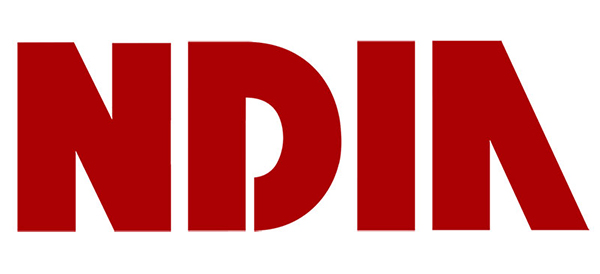
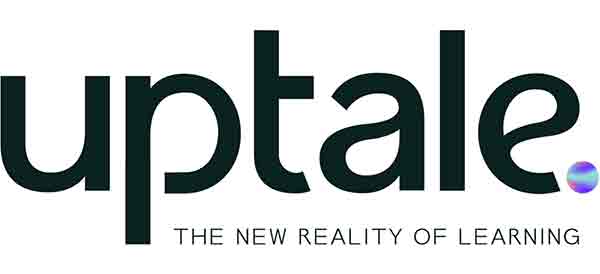



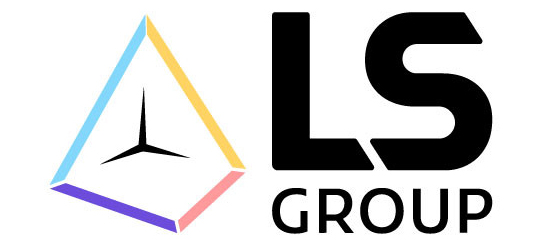
Why Choose Us for Telecom Software Development
Our deep understanding of telecom industry needs allows us to design tailored software that enhances network performance, boosts operational efficiency, and improves customer experiences seamlessly.
We create telecom software specifically aligned with your business objectives, ensuring each solution addresses unique challenges while delivering measurable results for long-term growth and competitiveness.
Our solutions are built to scale as your telecom business grows. We ensure flexibility, allowing for seamless integration of new technologies and adapting to future demands.
A dedicated team offers continuous support throughout development and post-deployment. We remain committed to optimizing your solutions, ensuring lasting success and operational stability.
FAQ
Virtual tours bring multiple substantial advantages to telecom facilities, meeting critical operational and customer-focused needs in ways that traditional on-site assessments or walkthroughs cannot match. With precise detail and accessibility, they serve as highly efficient tools for overseeing telecom facility management, optimizing training, and enhancing customer engagement.
Telecom facilities often span complex layouts with restricted zones, challenging physical assessments, and facility oversight. Virtual tours provide a comprehensive view that enables telecom management to thoroughly inspect critical infrastructure and monitor equipment without physically entering every area, ensuring consistent maintenance and effective troubleshooting. By offering a complete digital overlay of facility spaces, they allow teams to instantly access any area within the tour and identify potential issues with unprecedented speed and convenience.
Key advantages of virtual tours for telecom facilities include:
- Efficient training support. Telecom staff require extensive training to ensure familiarity with equipment and protocols in various facility zones. Virtual tours allow trainees to familiarize themselves with facility layouts, identify equipment, and practice response scenarios in a realistic, interactive environment.
- Enhanced operational visibility. Regular monitoring of telecom infrastructure is crucial. Virtual tours allow management teams to evaluate critical infrastructure visually, eliminating the need for frequent physical inspections and reducing downtime associated with on-site assessments.
- Improved access for remote teams. Virtual tours enable remote engineers, technicians, and stakeholders to inspect the facility’s setup and discuss specific components or areas collaboratively, reducing travel needs and offering a cost-effective way to involve dispersed teams.
- Optimized emergency preparedness. Telecom facilities handle sensitive equipment requiring careful protection. Virtual tours allow staff to practice safety protocols and run emergency drills in a risk-free environment, ensuring they are well-prepared for any critical situations.
Virtual tours also enable a higher degree of precision in facility management by mapping each area and piece of equipment. Facilities can incorporate AR-enhanced labels within the tour that displays key information about specific equipment. This enables easy access to real-time data such as operating status, maintenance history, and potential areas of concern, which helps telecom managers respond quickly to issues and proactively maintain the facility’s operational integrity.
For telecom training programs, virtual tours make an impactful addition by allowing training simulations that mirror real-world challenges without needing an actual facility space. Trainees gain familiarity with intricate facility setups, engage in equipment troubleshooting exercises, and learn complex protocols, preparing them to perform on-site roles effectively. The benefits are immediate, enabling quicker onboarding and increased productivity from day one.
Remote collaboration in telecom is also notably enhanced through virtual tours, providing clear advantages for dispersed teams. Telecom companies often employ specialists worldwide, each needing access to consistent and detailed visual information on facility layouts and setups. Virtual tours simplify cross-team collaboration, as each team member can participate in joint walkthroughs, share insights, and make informed decisions without traveling.
Further benefits include:
- Cost savings. Virtual tours significantly reduce operational costs while increasing engagement in remote team collaboration by minimizing travel expenses and on-site training needs.
- Enhanced customer transparency. When customers gain virtual access to telecom facilities, they gain insight into the infrastructure supporting the services they rely on, increasing customer trust and engagement.
- Efficient maintenance. Virtual tours help facility managers visually inspect the equipment's condition and layout, leading to faster and more accurate maintenance planning.
With their versatility, virtual tours ultimately stand as valuable assets for telecom facility management, enhancing efficiency across training, operations, and customer relations. For a customized solution that amplifies these benefits, contact us to explore how virtual tours can elevate your telecom operations.
Program-Ace offers the flexibility to either integrate ready-made solutions or develop custom training and simulation software from the ground up, ensuring each program aligns precisely with your organization’s needs. Every solution is designed to fit seamlessly within your operational structure, whether through adaptable existing frameworks or fully tailored platforms. We begin by assessing your key requirements, creating a foundation that allows for targeted skill development and practical knowledge transfer.
Our customizable approach means modules can replicate the exact tasks, challenges, and protocols specific to your industry. From technical skills training in healthcare to safety compliance in telecommunications, each simulation is structured to reflect real-world scenarios, fostering immediate engagement and skill retention. The training remains practical and applicable to employees’ everyday responsibilities by tailoring content to each role and function.
Additionally, our programs provide in-depth reporting tools, giving managers insights into employee progress and development. These metrics allow leaders to track skill acquisition and adjust training strategies accordingly, helping shape an evolving approach that supports continuous improvement. Real-time feedback also ensures that employees receive timely guidance, reinforcing skill mastery and confidence in their roles.
The versatility of our programs extends to accessibility options, such as multi-device support and multi-language capabilities for global teams. Our solutions are compatible with Learning Management Systems (LMS) and Human Resources platforms for seamless integration with existing infrastructure, allowing organizations to incorporate training smoothly and efficiently.
Discover how Program-Ace’s custom or ready-made training solutions can support your organization’s goals by reaching out to contact us for further details.
Participating in our VR training programs requires specific equipment to ensure a seamless, immersive experience. Essential components provide users realistic interactions and smooth operation across various training scenarios. Below is an overview of the necessary equipment:
- VR headset. A VR headset offers high-definition visuals and tracking capabilities, creating an immersive environment for effective training. Popular options include HTC Vive and Meta Quest, each providing reliable performance.
- VR-ready computer. A compatible computer with high processing power and a capable graphics card is necessary to handle complex VR software. Most VR training solutions require computers that support dedicated graphics cards such as NVIDIA or AMD.
- Hand controllers. Hand controllers enable users to interact with virtual elements, enhancing the training experience by allowing realistic manipulation of tools, equipment, and environments. They come as standard with many VR headsets, like the Meta (Oculus) Touch for the Meta (Oculus) line.
- Sensors or base stations. External sensors or base stations enhance tracking accuracy, precisely capturing user movements. This is especially useful in highly-mobility scenarios, ensuring the VR environment matches real-time actions.
- Audio system. A high-quality audio setup, either through built-in headset speakers or external headphones, adds essential auditory cues and enhances immersion, helping users respond to sounds integral to the training environment.
Optional add-ons include:
- Haptic feedback devices. These provide tactile responses, such as vibrations or resistance, allowing users to feel actions within the virtual space, adding realism to the experience.
- Motion-capture gloves. Advanced gloves that track hand and finger movements for detailed interactions can be especially beneficial in fine motor skills training scenarios.
While the core components are typically sufficient for most VR training scenarios, adding optional devices further enhances the training experience by enabling more realistic interactions. Each piece of equipment contributes to a holistic training solution that supports learning objectives through immersion and interactivity.
Reach out to us for expert advice on how to upgrade your telecom workforce and elevate their training experience.
Our soft skills training for telecom professionals covers essential interpersonal and professional competencies, addressing the dynamic needs of both field and office workers. Each program immerses employees in realistic, challenging scenarios to enhance problem-solving abilities, communication, and adaptability. Here’s how our tailored programs work:
- Customer service training. Telecom employees develop critical customer service skills through interactive scenarios with AI-powered avatars, managing situations ranging from billing inquiries to handling dissatisfied customers effectively.
- Roleplay with generative AI. Participants practice difficult conversations, from negotiating contract terms to delivering performance reviews, refining their communication skills with AI-driven feedback that adapts to different scenarios.
- Business negotiations. Employees engage in realistic negotiation exercises, learning strategies for successful partnerships, vendor agreements, and contract renewals within AI-powered, real-world telecom contexts.
- Presentation skills. Employees practice delivering presentations to various audiences in boardrooms or larger venues. AI-driven feedback focuses on vocal projection, clarity, and content delivery, enhancing their impact in real-world presentations.
- Job interview training. Through AI simulations, employees improve interview techniques by practicing concise responses and showcasing their telecom expertise. This training builds confidence and articulation, which is valuable both within and outside the organization.
- Impromptu speech training. This training helps telecom professionals think quickly and communicate clearly by practicing responses to unexpected prompts or questions, enhancing adaptability for dynamic customer and team interactions.
- Difficult conversations. Employees practice handling sensitive situations, such as giving feedback or addressing underperformance. AI avatars simulate real-life responses, enabling employees to approach tough conversations with empathy and effectiveness.
- Active listening exercises. Listening skills are crucial in telecom support and field service roles. Exercises like the Goldilocks challenge and simulated conference calls help employees develop attentive listening and critical thinking.
- Business networking. Networking exercises prepare employees to build professional relationships within the telecom industry, both virtually and in person, fostering skills to make lasting connections and open new business opportunities.
- Media ambush. Telecom spokespeople can experience the pressure of a sudden media interview, practicing strategies to answer questions effectively and maintain composure in high-stakes situations, whether on TV or radio.
- Sales pitching. Sales-focused employees practice pitching telecom services and products to new prospects in both virtual and live environments, refining their approach and receiving immediate feedback on their performance.
- Eye contact and body language training. This training helps telecom professionals improve non-verbal communication, with exercises on eye contact and body language critical for customer service and internal team interactions.
- Sexual harassment prevention. Through immersive simulations, employees gain awareness of common harassment scenarios and learn to respond appropriately, promoting a respectful and secure workplace culture.
For organizations in the telecom sector, equipping employees with solid and soft skills is essential to navigating complex interactions, whether in customer service, team collaboration, or high-stakes negotiations. Our tailored training programs foster growth in these areas, helping telecom professionals communicate effectively, adapt to dynamic situations, and maintain a customer-centric approach.
With immersive, AI-driven training modules, employees receive hands-on practice that prepares them for the diverse challenges they may encounter on the job. Each program is customized to reflect real-world scenarios, enabling telecom teams to build essential skills with practical relevance and measurable impact.
Discover how our customized training solutions can improve your team’s skills, strengthen client relationships, and drive workplace excellence. Connect with us for a personalized consultation on the programs that best fit your company.
Serious games offer a modern, interactive alternative to traditional training programs by engaging users in immersive, game-like environments that make learning more dynamic and memorable. Unlike conventional training, which often relies on lectures, slideshows, or written materials, serious games use interactive scenarios, storytelling, and rewards to involve learners in the training process actively. Here are the primary ways serious games stand apart from traditional training:
- Engagement through interactivity. Serious games create hands-on experiences where participants actively make decisions, solve problems, and navigate scenarios, increasing engagement compared to passive learning methods.
- Immediate feedback and rewards. Learners in serious games receive instant feedback on their actions, guiding them toward improvement and reinforcing learning through rewards like points, badges, or progression levels.
- Realistic simulations. With virtual environments that mirror real-life work situations, serious games allow employees to practice complex skills in a risk-free setting, improving confidence and competence in handling real challenges.
- Adaptive learning paths. Serious games can adapt to individual performance, offering challenges that match each learner’s skill level and pace, unlike one-size-fits-all traditional training.
- Higher retention rates. By involving learners emotionally and cognitively through game mechanics, serious games tend to increase retention and long-term knowledge retention.
Overall, serious games make learning active, personalized, and impactful, transforming the training experience into an engaging journey that promotes skills, knowledge, and confidence in a way that traditional methods often struggle to achieve. Contact us and learn more about how our solutions can be valuable for your business.
Implementing our solutions within your organization begins with a structured process led by our business analysts and consulting team. Their role is to conduct an in-depth analysis of your specific operational needs, strategic objectives, and unique challenges. This initial assessment serves as the foundation, ensuring that every solution we recommend aligns precisely with your organizational goals and existing workflows. Here’s a breakdown of the steps involved to get started with our solutions:
- Comprehensive needs assessment. Our business analysts perform a detailed evaluation of your organization’s processes, identifying critical requirements, specific pain points, and the areas where our solutions can provide the most impact.
- Tailored solution selection. Based on the assessment, our consulting team recommends solutions that align closely with your objectives. Whether you need off-the-shelf options or fully customized software, we ensure the selected solutions meet both immediate needs and long-term goals.
- Strategic implementation planning. Once solutions are selected, our team creates a step-by-step deployment plan that covers every phase of implementation. This planning ensures smooth integration with minimal disruption to your existing operations.
- End-to-end integration support. We guide your organization through the complete setup and configuration process, providing ongoing assistance to your team as needed. Our consultants remain available for support, helping address any issues and ensuring that the solutions deliver optimal results.
- Training and knowledge transfer. In order to maximize the effectiveness of each solution, we offer training programs tailored to your team’s needs. This enables employees to understand and use the solutions effectively, fostering greater adoption and skill-building across your organization.
- Performance review and optimization. Following implementation, we monitor solution performance and provide recommendations for optimization, ensuring that the tools adapt as your organizational needs evolve.
Each step in this process ensures that our solutions are not only implemented effectively but also contribute meaningfully to your operational goals. Whether enhancing productivity, streamlining workflows, or equipping your team with new capabilities, our approach aligns every solution with your specific requirements.
Curious about how our tailored solutions can modernize your organization? Reach out now, and let our consulting experts design a roadmap just for you.
Digital twins bring substantial advantages to telecom operations, enhancing infrastructure management and service delivery. By creating virtual replicas of networks, equipment, and entire facilities, telecom organizations gain greater visibility and control over their assets. When integrated with real-time data and predictive analytics, this technology allows telecom teams to optimize performance, reduce downtime, and streamline maintenance efforts — all key areas where Program-Ace specializes in providing robust, custom solutions.
Key benefits of digital twins in telecom operations include:
- Enhanced monitoring and maintenance. Digital twins allow telecom operators to monitor assets continuously, detecting potential issues before they escalate. This proactive approach supports efficient maintenance planning and minimizes downtime, critical in high-demand telecom environments.
- Predictive analytics for reliability. With real-time data integration, digital twins predict potential failures or performance drops, enabling teams to address them before they impact network reliability. Program-Ace’s solutions leverage this predictive insight, enhancing overall infrastructure stability.
- Optimization of network performance. By simulating network behaviors and traffic flows, digital twins allow operators to test adjustments and optimize configurations virtually, avoiding disruptions. This capability is essential in adapting to the rapid growth of data demands and 5G deployments.
- Efficient resource utilization. Through digital twins, telecom teams can manage resources more effectively by simulating the impact of various operational changes. From energy use to bandwidth allocation, this resource management ensures efficient utilization, reducing operational costs.
- Remote troubleshooting and collaboration. Digital twins allow teams to analyze and troubleshoot issues remotely, enhancing collaboration between field technicians and centralized teams. Similar features are invaluable in large-scale operations or remote sites where immediate onsite intervention may be challenging.
- Data-driven decision-making. By visualizing and analyzing complex operational data, digital twins empower telecom leaders to make informed, data-backed decisions about network expansions, upgrades, or restructuring, with insights that support current and future needs.
Program-Ace's tailored digital twin solutions integrate seamlessly with telecom operations, providing a real-time digital representation of physical assets that supports proactive maintenance, operational efficiency, and cost savings. For more insights into how digital twins can transform your telecom operations, reach out to contact us and discover the full range of possibilities.
Customer Testimonials: The Proof is in Their Words
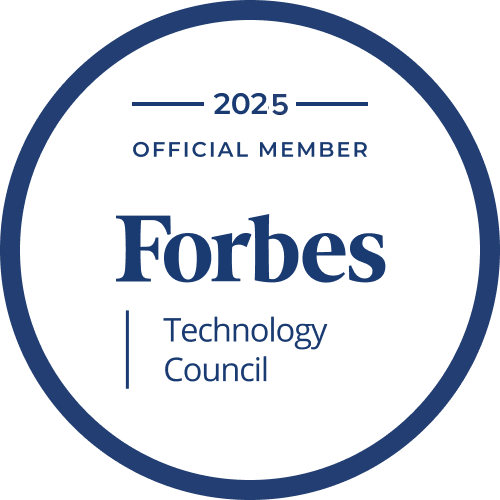
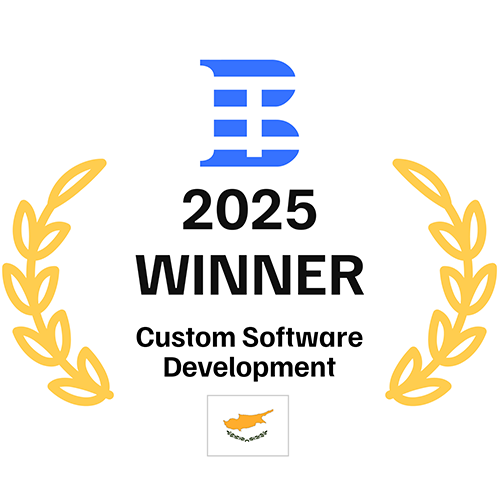





Start A Project With Us
Tell us more about your business needs to help us serve you better. The more detailed information will allow us to route your inquiry to the most appropriate person in our team.
By sending this form you agree to our Privacy Policy. The information you provide will be added to our CRM system for further communication.
Headquarters:
Our Clients

























